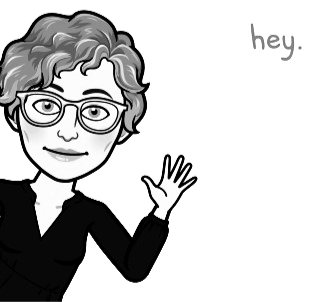Confessions of a Twitter lurker
- Jess Skoczek

- May 24, 2021
- 3 min read
Updated: Nov 1, 2021

I've had a Twitter account for well over a decade, but have never tweeted. Granted, I've gone years at a time without logging in either, but even when I attempt to reactivate my interest in Twitter I remain a pathological lurker. There are several reasons I've stayed Twitter-shy:
I don't enjoy public sharing. I just don't get the dopamine hit from 'likes', which significantly decreases the potential reward.
The very immediacy which author, educator and connected learning advocate Howard Rheingold praises in Net smart: how to thrive online (2012) necessitates a level of constant connection that I have neither the time nor energy for. I prefer to dip in and out rather than immerse myself constantly.
The sheer volume of content makes finding valuable information difficult, and the casual tone can make it more difficult to find verified and high quality information.
My entire digital identity is quite vague, although not because of a lack of interest. I’ve also been on Facebook since it was made available to Australian university students, Instagram and Pinterest since their inception, and dabbled in LinkedIn, Reddit, Tumblr, Photobucket, and Flickr. Somewhere in the depths of the internet lie dusty Myspace, LimeWire, Quora, Yahoo Answers, StumbleUpon, AIM, Friendster, DeviantArt, LiveJournal, Digg and Bebo accounts. But I'm also quite protective of my privacy, both digitally and IRL. Due to this, and an exceptionally common legal name, I have quite a small digital footprint. ‘Googling’ me, even with added personal or geographic details, brings up nothing relevant.
However, as I learn more about participatory culture, professional learning networks, and connected learning I have realised it might be time to 'walk the talk' and incorporate elements of this into my professional practice. Honestly, the idea of becoming a completely Connected Educator seemed frankly exhausting. Dr Deborah M. Netolicky’s 2018 blog post also reflects my concern that the expectation to share and contribute amounts to ‘unpaid labour’ and contributes to the workload intensification already experienced by teachers.
Despite such reservations, I know that valuable insights often come from leaning into discomfort and I agree that “learning happens best when we share the experience with others – when we debate, discuss, explain and defend our ideas and the new concepts we are trying to understand” Oddone (2021, para. 4). I’ve therefore started to tentatively start to move up the ‘participation ladder’ from spectator to creator and learn, explore and connect as part of an active online community (Richardson & Mancabelli, 2011). First, I started sharing content on my Facebook professional learning network. Next, I used my skills with curation to mould Twitter into a useful source of information for my Professional Learning Network. I've started the process of organising my infostream using TweetDeck to create streams of information based on accounts and hashtags. I’m now operating in Oddone's (2019) amplifying stage by engaging in “active contribution, creativity and knowledge formation, as well as collaborative co-construction, and remixing or redistribution of information and resources” (p. 254). And I’ve actually found it incredibly valuable!
Honestly, I’m not ready to abandon my status as Eternal Lurker. I'm not going to shout my opinions into the Twitter-verse or cultivate a social media addiction to force myself to generate digital connections. My next challenge is to consider how my experiences as a learner could inform my practice as an educator... time to creep out of the shadows?
References
Oddone, K. (2019). Teachers’ experience of professional learning through personal learning networks. [Doctoral dissertation, Queensland University of Technology]. QUT ePrints https://qut.primo.exlibrisgroup.com/permalink/61QUT_INST/1g7tbfa/alma991009679876504001
Oddone, K. (2021, March 25). The value of narrative in online learning [Web log message]. Retrieved from https://www.linkinglearning.com.au/the-value-of-narrative-in-online-learning/.
Richardson, W. & Mancabelli, R. (2011). Becoming a networked learner. In W. Richardson & R. Mancabelli (Eds.). Personal Learning Networks: Using the power of connections to transform education (pp. 33-57). Victoria: Hawker Brownlow.


This blog has really brought back some memories of old social networking sites and the cultures that existed within and around them. I loved your discussion around the relationship between lurking, professional practise and participatory culture! It's so difficult to know when, where, why, and how to meaningfully voice your opinion online, especially with the sheer volume of other people's opinions circulating. I think the fact that, once uploaded, words and images are almost impossible to remove completely has kept me from developing any sort of robust virtual presence. Once its online, you've no control over it, and thats a scary thought! I think that, like you, I might just stick to lurking for a while longer!
Great post! Your comment about your small digital footprint made me think about how glad I am that Facebook was only in its infancy when I was in my late teens/early 20s; or I would be in a bit of trouble with a quick old GOOGLE search right about now… I worry about some of my students today though. If they aren’t uploading ridiculous and questionable content of themselves or their friends, they are reposting it. Despite warnings about how this could potentially impact their futures, it is so deeply entrenched in their culture that it literally goes in one ear and out the other. They really are the ones who should stick to lurking!